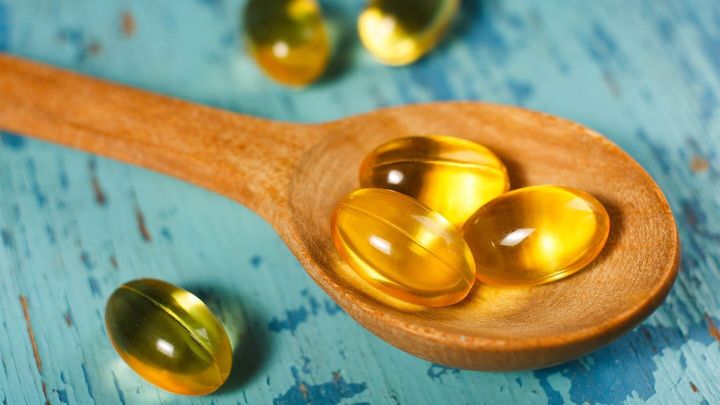
Psoriasis is a challenging skin condition to manage. Often, triggers are unknown, and symptoms can vary across people and different parts of the body. There are some natural products that show promising signs for treatment though.
For sufferers of psoriasis, every day is a new challenge. A flare-up might be due to a new chemical in your bodywash, or stress, or diet, or nothing at all. Treatments that have worked in the past suddenly don’t. And through it all, skin is flaky, red, irritated, and insanely itchy. People offer their well-meaning advice; have you tried coconut oil? Essential oils? Cutting everything from your diet and chewing on carrot sticks for your only sustenance?
So we write this with scientific research backing it, and hopefully, some relief.
What is psoriasis?
Psoriasis is a chronic skin condition. It is an autoimmune disease that causes skin cells to renew up to ten times faster than usual. This results in a build-up of skin, bumpy red patches that are covered in flaky white scales. Every sufferer is different, but often it happens on the scalp, knees, elbows and lower back. Symptoms come and go, often without warning or triggers.
There are a range of types of psoriasis. From the silver scales that are itchy, painful and can bleed, through to fingernails and toenails that crumble, detach or are discoloured and pitted, everyone is different.
What are the traditional treatments?
There are a range of treatments that a doctor will prescribe. Some try to slow the skin cell growth, while others simply try to offer relief from the itching and irritation.
Steroid creams are common, and they will help control the problem. However they can have side effects such as worsening other skin disorders, or developing bruising, discolouration, or spider veins. These creams are not designed for life-long use, but as a short term measure to alleviate a flare-up.
Moisturisers sometimes help to calm and hydrate, sometimes they make things worse, depending on the ingredients. Everyone has different experiences.
Coal tar is commonly used in a variety of forms. You can use creams, foams, shampoos and bath solutions. These may itch, burn, causes irritation, or stain the skin and hair. They can also make you sensitive to sunlight.
Retinoids are a relative to vitamin A. They can have serious side effects, especially for pregnant women.
Drugs including Methotrexate, Humira (biologic treatment) and Otezla (enzyme inhibitor) may be used. These can have serious side effects.
Luckily, there is some promising research that shows some natural products may be helpful.
Bee products
Bee products includes things like honey, propolis, bee wax, venom and royal jelly. In particular, propolis is rich in essential oils, and has been used in indigenous medications and treatment for thousands of years.
A study of 2248 patients with mild to moderate cases of psoriasis showed some promising results. At the end of the 12 week study, 64.4% of sufferers had cleared completely, 22.2% had a ‘good’ response, while only 13.3% reported no response or very little.
Aloe vera gel
This natural plant-based gel is famous for its healing and calming properties. It’s packed full of nutrients and helps with a range of skin complaints. There have been a range of studies in relation to psoriasis and results are mixed. While aloe vera won’t cure or solve the problem, it may help in reducing inflammation and encouraging healing. It could be a useful part of your treatment plan.
Oregon grape/ barberry
With the scientific name of Mahonia aquifolium, this might sound a bit out of left field. But, a major meta-study found that use of Oregon grape applied topically on the skin resulted in a significant improvement in the symptoms of psoriasis. There were no or minimal side effects. It’s said that the isoquinolone alkaloids including jatorrhizamine, palmatine, berberine, beramine, and magnoflorine account for the excellent healing properties.
Curcumin
The active ingredient in turmeric, curcumin has been part of Indian’s skin care routine for thousands of years. Studies have found that when used in conjunction with light therapy, curcumin can be very effective in treating the symptoms of psoriasis.
While there’s no cure, there is hope
For many people, the triggers or actions that cause psoriasis flare-ups are unknown. There’s also no ‘cure’ to psoriasis, no hard and fast rule that everyone responds to.
For sufferers, the best bet is simplicity. Find a skincare regime that has a simple list of ingredients, and avoid perfumes, alcohols and known irritants. Apricot oils are showing hope, so investing in a moisturiser with apricot kernel extracts may help to alleviate symptoms. Keep your treatments gentle, avoiding harsh scrubbing that may further damage your skin. Use oil-based cleansers rather than foaming ones, and don’t strip your natural sebum.
Don’t lose hope. There are many studies looking into natural remedies for psoriasis, and there are some positive outcomes so far. Try adding curcumin, barberry, or propolis to your treatment plan, and you may help to treat the symptoms and encourage healing for your skin.






